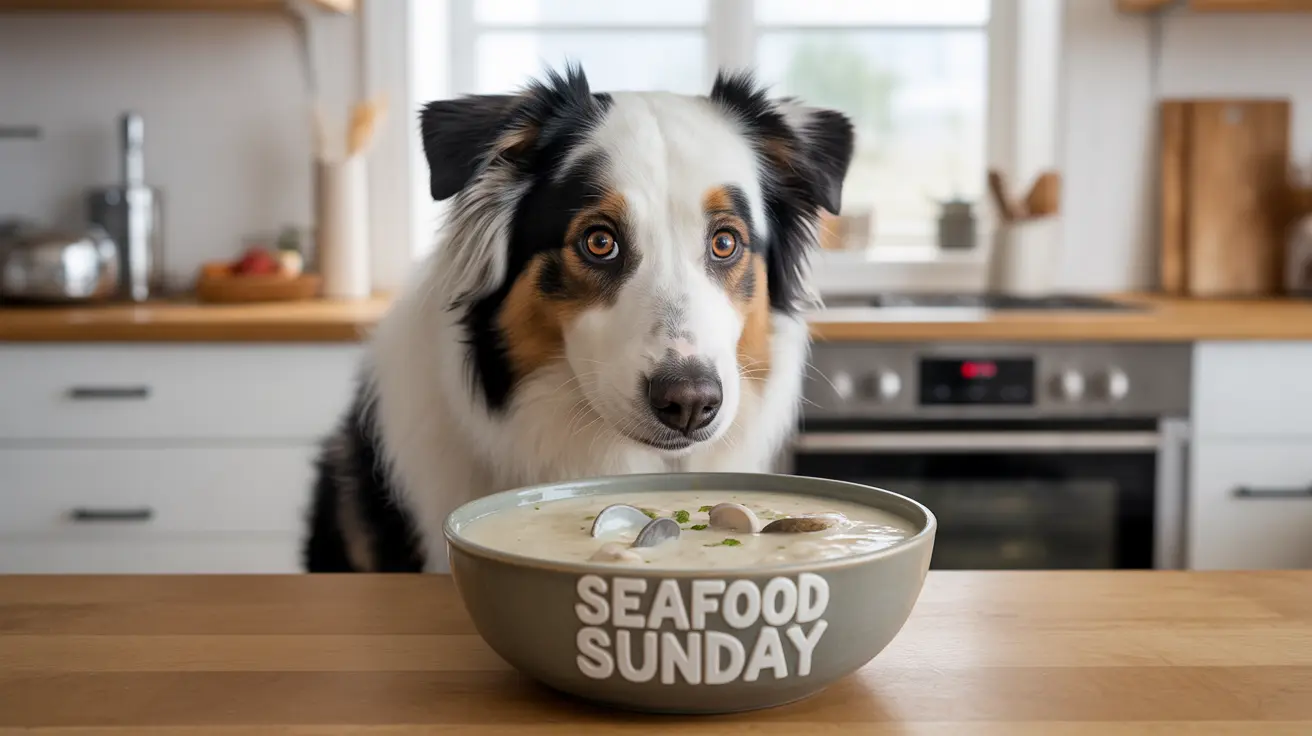As pet owners increasingly share their meals with their furry friends, it's crucial to understand which human foods are safe for dogs. Clam chowder, while delicious for humans, presents several potential hazards for our canine companions. Let's explore why this popular seafood dish might not be the best choice for your dog and what alternatives you can consider.
Understanding the risks and benefits of feeding clam chowder to dogs requires examining both its primary ingredients and preparation methods. While plain clams can offer nutritional benefits, the traditional preparation of clam chowder introduces several concerning elements for canine health.
Why Clam Chowder Is Dangerous for Dogs
The primary concern with feeding clam chowder to dogs lies in its ingredients. Most recipes contain components that can be toxic or harmful to canine health:
Toxic Ingredients in Clam Chowder
- Onions and garlic (can cause hemolytic anemia)
- High sodium content (risk of salt poisoning)
- Bay leaves (toxic to dogs)
- Heavy cream (causes digestive issues)
- Flour thickeners (potential allergens)
The Safe Way to Feed Clams to Dogs
While clam chowder itself is unsafe, plain cooked clams can be a healthy addition to your dog's diet when prepared properly:
- Remove all shells
- Cook thoroughly without seasonings
- Serve in small portions
- Monitor for allergic reactions
Health Risks of Feeding Dogs Clam Chowder
Immediate Risks
Dogs who consume clam chowder may experience:
- Vomiting and diarrhea
- Excessive thirst
- Lethargy
- Abdominal pain
- Allergic reactions
Long-term Concerns
Regular consumption could lead to:
- Obesity from high caloric content
- Kidney issues from excess sodium
- Chronic digestive problems
- Nutritional imbalances
Safe Alternatives to Clam Chowder
Instead of sharing clam chowder with your dog, consider these safer options:
- Plain, cooked clam meat (occasional treat)
- Commercial fish-based dog treats
- Veterinary-approved seafood recipes
- Fresh or frozen plain fish (properly deboned)
Frequently Asked Questions
Can dogs safely eat clam chowder or is it harmful to them?
No, dogs should not eat clam chowder as it contains several ingredients that are toxic or harmful to dogs, including onions, garlic, and high levels of sodium.
What ingredients in clam chowder make it unsafe for dogs to consume?
The main harmful ingredients include onions and garlic (which can cause anemia), excessive salt, dairy products, bay leaves, and sometimes wheat-based thickeners that can cause allergic reactions.
Are plain cooked clams a healthy treat for dogs, and how should they be prepared?
Yes, plain cooked clams can be a healthy treat when prepared properly - fully cooked, shells removed, and served without seasonings or additives. They provide protein, omega-3 fatty acids, and minerals.
What signs should I watch for if my dog accidentally eats clam chowder?
Monitor for vomiting, diarrhea, excessive thirst, lethargy, weakness, pale gums, and unusual behavior. If these symptoms occur, contact your veterinarian immediately.
How can I safely include seafood like clams in my dog's diet without risking health issues?
Serve plain, cooked seafood in small portions, remove all shells and bones, avoid seasonings, and introduce new foods gradually while monitoring for adverse reactions.
Conclusion
While clam chowder is definitively unsafe for dogs, there are plenty of ways to safely incorporate seafood into your pet's diet. Always prioritize your dog's health by avoiding human dishes like clam chowder and instead choosing pet-appropriate alternatives. When in doubt, consult with your veterinarian about safe dietary choices for your furry friend.






